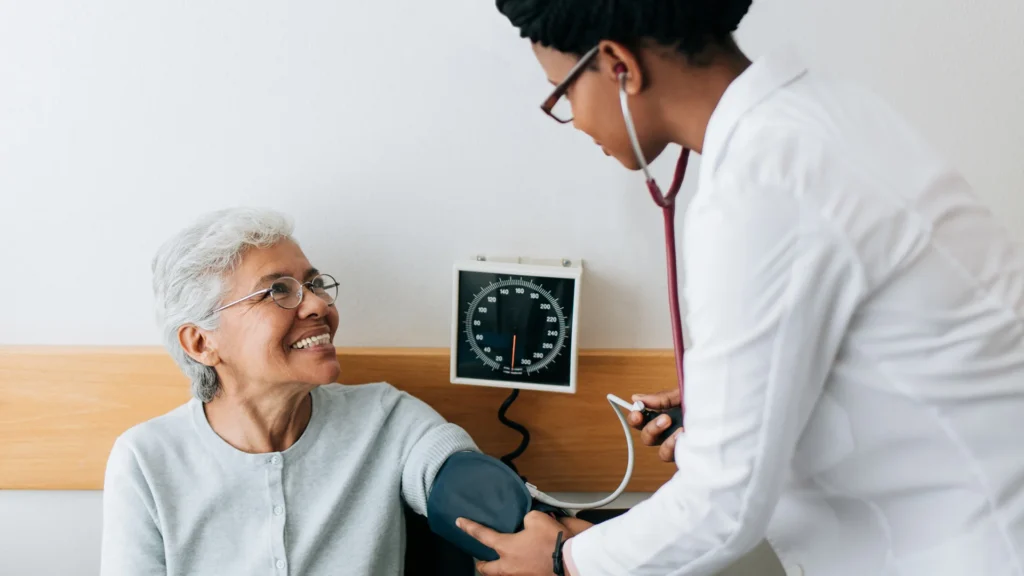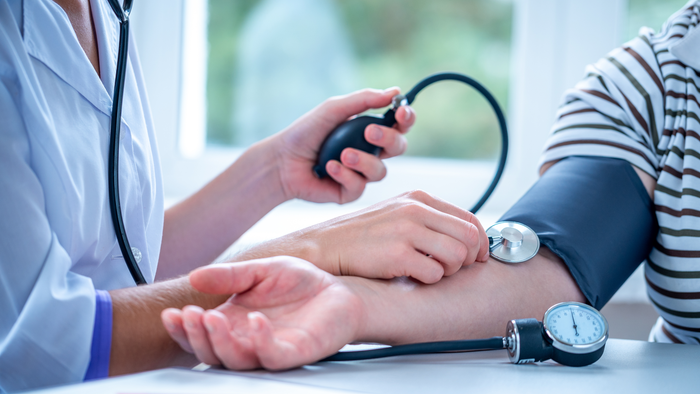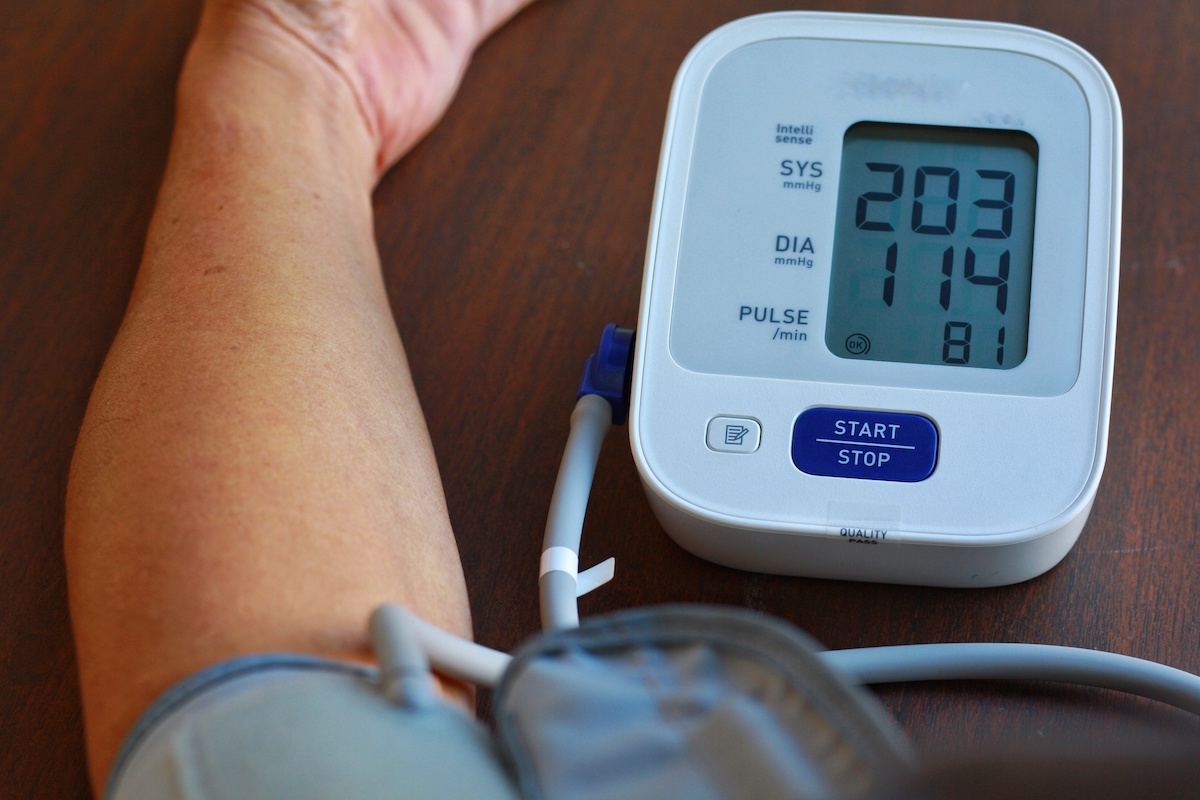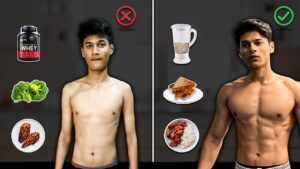Overview
High blood pressure, or hypertension, is a common health problem that affects the blood vessels. It happens when the pressure of blood flowing through your arteries is too high, making your heart work harder to pump blood.
Blood pressure is measured in a unit called millimeters of mercury (mm Hg). High blood pressure is usually considered to be 130/80 mm Hg or higher.
The American College of Cardiology and the American Heart Association break blood pressure into four categories:
- Normal blood pressure: Less than 120/80 mm Hg.
- Elevated blood pressure: The top number (systolic) is between 120-129 mm Hg, and the bottom number (diastolic) is less than 80 mm Hg.
- Stage 1 hypertension: The top number is between 130-139 mm Hg, or the bottom number is between 80-89 mm Hg.
- Stage 2 hypertension: The top number is 140 mm Hg or higher, or the bottom number is 90 mm Hg or higher.
Knowing your blood pressure can help you take steps to keep it under control and avoid future health problems.
If left untreated, high blood pressure can significantly increase the risk of serious health issues, including heart attack, stroke, and other complications. It’s important to have your blood pressure checked regularly, ideally at least once every two years starting at age 18. Depending on your health, more frequent checks may be necessary.
Adopting healthy lifestyle habits — such as avoiding smoking, staying physically active, and eating a balanced diet — can help prevent and manage high blood pressure. In some cases, medication may also be required to effectively control blood pressure.
Table of Contents
Symptoms
High blood pressure, or hypertension, is often called a “silent killer” because it usually doesn’t cause noticeable symptoms until it reaches a dangerous level. Many people with high blood pressure may feel fine and not realize they have it. However, when blood pressure becomes very high, some potential symptoms can include:
- Headaches: Severe headaches, especially in the morning.
- Dizziness or lightheadedness: Feeling faint or unsteady.
- Blurred vision: Trouble seeing clearly or sudden changes in vision.
- Chest pain: Unexplained chest discomfort or pain.
- Shortness of breath: Difficulty breathing or feeling winded even with light activity.
- Fatigue: Feeling unusually tired or weak.
- Nosebleeds: Frequent or unexplained nosebleeds.
- Blood in urine: This can be a sign of kidney damage from high blood pressure.
It’s important to note that these symptoms can also be related to other health conditions. The only way to know if you have high blood pressure is to have it measured regularly by a healthcare professional.
When to Consult a Doctor
It’s important to see a doctor if you have any concerns about your blood pressure, even if you aren’t experiencing symptoms. However, there are certain situations when you should definitely seek medical attention:
- If your blood pressure is consistently high: If you regularly have a blood pressure reading of 130/80 mm Hg or higher, it’s a good idea to schedule an appointment with your doctor to discuss treatment options.
- If you experience symptoms: If you have severe headaches, chest pain, shortness of breath, dizziness, blurred vision, or other signs that may be linked to high blood pressure, seek medical help immediately.
- If you’ve been diagnosed with high blood pressure but it’s not well controlled: If your blood pressure remains high despite lifestyle changes or medication, or if you’re experiencing side effects from blood pressure medications, talk to your doctor. They may need to adjust your treatment plan.
- If you are at higher risk: If you have a family history of high blood pressure, heart disease, or stroke, or if you are overweight, smoke, or have other health conditions like diabetes, it’s important to monitor your blood pressure regularly and follow your doctor’s advice.
- If you’re pregnant: High blood pressure during pregnancy, known as preeclampsia, can be dangerous for both the mother and baby. If you’re pregnant and notice symptoms such as swelling, sudden weight gain, or high blood pressure readings, see your healthcare provider right away.
Regular check-ups and open communication with your doctor are key to preventing and managing high blood pressure effectively.

Causes
High blood pressure, or hypertension, can be caused by a variety of factors, some of which are within your control and others that are not. The two main types of high blood pressure are:
Primary (Essential) Hypertension
This is the most common type and doesn’t have a clear, single cause. It develops gradually over many years and is typically linked to a combination of the following factors:
- Genetics: A family history of high blood pressure increases your risk.
- Age: Blood pressure tends to rise as you get older.
- Unhealthy Diet: Diets high in sodium (salt), unhealthy fats, and low in fruits and vegetables can raise blood pressure.
- Lack of Physical Activity: Being inactive or not exercising regularly can contribute to high blood pressure.
- Obesity: Carrying excess weight can put extra strain on your heart and blood vessels.
- Stress: Chronic stress or prolonged periods of anxiety can contribute to high blood pressure.
- Alcohol and Tobacco Use: Drinking too much alcohol and smoking can both increase blood pressure.
Secondary Hypertension
This type of high blood pressure is caused by an underlying health condition or factor, and it tends to develop suddenly. Causes can include:
- Kidney disease: Kidney problems can affect the balance of fluids and salts in the body, raising blood pressure.
- Hormonal disorders: Conditions like hyperthyroidism, adrenal gland tumors, or other hormone imbalances can cause high blood pressure.
- Sleep apnea: Interrupted breathing during sleep can lead to high blood pressure.
- Medications: Certain medications, like birth control pills, decongestants, pain relievers, and some over-the-counter drugs, can raise blood pressure.
- Chronic conditions: Diabetes, high cholesterol, and other health issues can also contribute to secondary hypertension.
Lifestyle and Environmental Factors
- High sodium intake: Too much salt in your diet can cause your body to retain more fluid, raising blood pressure.
- Lack of sleep: Poor sleep quality or not getting enough sleep over time can contribute to high blood pressure.
In many cases, high blood pressure is preventable and manageable with lifestyle changes such as eating a balanced diet, staying active, reducing stress, and avoiding smoking or excessive alcohol. Regular check-ups are important to catch any potential issues early, especially if you’re at risk due to family history or other factors.

Risk factors of high blood pressure
Several risk factors can increase your likelihood of developing high blood pressure (hypertension). Some of these are within your control, while others are not. Here’s an overview of the key risk factors:
Age
- Risk increases with age: Blood pressure tends to rise as you get older, especially after age 45 for men and after age 65 for women.
Family History (Genetics)
- Hereditary factors: If high blood pressure runs in your family, you’re more likely to develop it yourself. Genetic factors can affect how your blood vessels respond to pressure and how your kidneys manage fluid balance.
Unhealthy Diet
- High sodium (salt) intake: Eating too much salt can cause your body to retain water, which raises blood pressure.
- Low potassium: Potassium helps balance the amount of sodium in your cells. A low potassium intake can lead to high blood pressure.
- Excessive alcohol consumption: Drinking large amounts of alcohol can increase blood pressure over time.
Lack of Physical Activity
- Sedentary lifestyle: Not getting enough exercise can contribute to weight gain and increase your risk of high blood pressure. Regular physical activity helps keep your heart and blood vessels healthy.
Obesity or Overweight
- Excess weight: Carrying extra weight puts added pressure on the heart and blood vessels, which can raise blood pressure. People who are overweight or obese are at higher risk for developing hypertension.
Smoking
- Tobacco use: Smoking damages blood vessels and can lead to a temporary increase in blood pressure. Over time, the damage from smoking can make it more difficult to control blood pressure.
Chronic Stress
- Long-term stress: Chronic stress or stressful situations can cause a temporary increase in blood pressure. Additionally, stress may lead to unhealthy behaviors like overeating, drinking alcohol, or smoking, which can contribute to hypertension.
Sleep Apnea
- Interrupted breathing during sleep: Sleep apnea, a condition where your breathing repeatedly stops and starts during sleep, can significantly increase the risk of high blood pressure, especially if left untreated.
Chronic Conditions
- Diabetes: People with diabetes are at higher risk for high blood pressure. High blood sugar can damage blood vessels and affect kidney function, both of which can contribute to hypertension.
- High cholesterol: Elevated cholesterol can cause plaque buildup in the arteries, making it harder for blood to flow, which can increase blood pressure.
Gender
- Men are at higher risk earlier: Men are more likely to develop high blood pressure before age 55. However, after age 65, women are just as likely, if not more likely, to develop high blood pressure than men.
Pregnancy
- Pregnancy-related hypertension: Some women may develop high blood pressure during pregnancy, known as gestational hypertension or preeclampsia. These conditions can pose risks for both the mother and the baby.
Ethnicity
- Certain groups are at higher risk: African Americans are more likely to develop high blood pressure at a younger age and may experience more severe cases compared to other ethnic groups.
Lack of Sleep or Poor Sleep Quality
- Sleep deprivation: Not getting enough sleep, or having poor-quality sleep, can increase the risk of high blood pressure over time. Sleep is crucial for maintaining overall cardiovascular health.
Medications
- Certain drugs: Some over-the-counter or prescription medications, such as birth control pills, decongestants, pain relievers (NSAIDs), and certain antidepressants, can raise blood pressure.
Managing Risk Factors:
While you can’t control factors like age or family history, many of the risk factors for high blood pressure are lifestyle-related and can be managed. Adopting a healthy diet, exercising regularly, avoiding tobacco and excess alcohol, managing stress, and maintaining a healthy weight are all effective ways to reduce your risk of developing high blood pressure. Regular check-ups with your doctor can help monitor your blood pressure and address any issues early.

Complications
High blood pressure (hypertension) can lead to a variety of serious health complications if left untreated or poorly managed. Over time, the strain it puts on the heart and blood vessels can cause damage to various organs and systems in the body. Here are some of the key complications of high blood pressure:
Heart Disease
- Heart Attack: High blood pressure can damage the coronary arteries, reducing blood flow to the heart. This can increase the risk of a heart attack.
- Heart Failure: The heart has to work harder to pump blood, which can eventually lead to heart failure, a condition where the heart is unable to pump blood effectively.
- Enlarged Heart: The extra strain on the heart muscle from high blood pressure can cause it to enlarge, which can impair its ability to function properly.
Stroke
- Ischemic Stroke: High blood pressure can cause the arteries that supply blood to the brain to become narrowed or blocked, leading to an ischemic stroke (caused by a clot).
- Hemorrhagic Stroke: Hypertension can also cause blood vessels in the brain to rupture, leading to a hemorrhagic stroke (bleeding in the brain).
Kidney Damage
- Chronic Kidney Disease (CKD): High blood pressure can damage the blood vessels in the kidneys, reducing their ability to filter waste from the blood. This can lead to kidney failure if left untreated.
- Kidney Failure: In severe cases, kidney damage from uncontrolled high blood pressure can require dialysis or a kidney transplant.
Vision Loss
- Damage to Retinal Blood Vessels: High blood pressure can damage the tiny blood vessels in the eyes, leading to a condition called hypertensive retinopathy, which can result in vision impairment or even blindness if untreated.
- Glaucoma: Hypertension can increase the risk of glaucoma, a condition where the pressure inside the eye increases, leading to nerve damage and potential vision loss.
Aneurysm
- Weakened Artery Walls: Over time, the constant high pressure of blood flowing through the arteries can cause the artery walls to weaken and bulge, forming an aneurysm. If an aneurysm ruptures, it can be life-threatening.
- Aortic Aneurysm: This is an aneurysm that occurs in the large artery (aorta) that carries blood from the heart. A rupture can lead to severe internal bleeding and death.
Cognitive Decline and Dementia
- Reduced Blood Flow to the Brain: Chronic high blood pressure can lead to a narrowing of the arteries in the brain, limiting the flow of oxygen-rich blood. This can cause cognitive decline and increase the risk of conditions like vascular dementia and Alzheimer’s disease.
- Memory Loss: Over time, untreated hypertension can contribute to memory problems and difficulty concentrating.
Sexual Dysfunction
- Erectile Dysfunction (ED): High blood pressure can damage the blood vessels, leading to reduced blood flow to the penis, which can cause erectile dysfunction in men.
- Decreased Libido: Women with high blood pressure may experience a reduction in sexual desire due to poor blood flow and hormonal changes.
Pregnancy Complications
- Preeclampsia: High blood pressure during pregnancy can lead to a condition called preeclampsia, which can cause severe complications for both the mother and the baby, including organ damage, premature birth, or even death.
- Placental Abruption: High blood pressure can increase the risk of placental abruption, where the placenta separates from the uterus, which can be life-threatening for both mother and baby.
Peripheral Artery Disease (PAD)
- Narrowing of Arteries in Limbs: High blood pressure can contribute to the narrowing of arteries in the legs and arms, reducing blood flow and causing pain, numbness, or even ulcers and infections in the affected limbs.
Metabolic Syndrome
- Increased Risk of Heart Disease and Diabetes: High blood pressure is one of the key components of metabolic syndrome, a cluster of conditions (including obesity, high blood sugar, and abnormal cholesterol levels) that increase the risk of heart disease, stroke, and type 2 diabetes.
Preventing Complications:
The good news is that high blood pressure is manageable. By regularly monitoring your blood pressure, making healthy lifestyle choices (such as eating a balanced diet, exercising, avoiding smoking, and managing stress), and taking prescribed medications, you can significantly reduce the risk of developing these complications. Regular visits to your healthcare provider are key to detecting and addressing high blood pressure early before it leads to serious problems.
-
How to Reduce Blood Pressure?
There are several effective ways to reduce high blood pressure and keep it under control:
Adopt a Healthy Diet: Focus on a diet rich in fruits, vegetables, whole grains, lean proteins, and low-fat dairy. Limit sodium intake and reduce processed foods.
Exercise Regularly: Aim for at least 30 minutes of moderate exercise most days of the week, such as brisk walking, swimming, or cycling.
Manage Stress: Practice stress-relieving activities like yoga, meditation, deep breathing exercises, or spending time in nature.
Limit Alcohol and Caffeine: Reduce alcohol intake and limit caffeine consumption, as both can raise blood pressure.
Quit Smoking: Smoking can damage blood vessels and raise blood pressure, so quitting is one of the best things you can do for your heart health.
Maintain a Healthy Weight: Losing even a small amount of weight can have a significant impact on reducing blood pressure.
Take Medications: If prescribed by your doctor, medications like diuretics, ACE inhibitors, or beta-blockers can help control blood pressure. -
How Can I Bring My Blood Pressure Down Quickly?
If you need to lower your blood pressure quickly, follow these steps (but always consult a doctor for severe cases):
Take deep, slow breaths: Deep breathing can help relax your nervous system and reduce your blood pressure.
Sit and Rest: Sit quietly and avoid any strenuous activity. Physical rest can help lower blood pressure.
Drink water: Staying hydrated helps support healthy circulation and may help prevent blood pressure spikes.
Avoid caffeine and alcohol: Both can raise blood pressure, so avoid them when you’re trying to lower your reading.
Use relaxation techniques: Try methods like meditation or guided imagery to calm your mind and reduce stress.
Important: For a serious blood pressure spike (hypertensive crisis), you should seek immediate medical attention. Symptoms like chest pain, severe headache, or shortness of breath require urgent care. -
When to Worry About High Blood Pressure?
You should be concerned about high blood pressure when:
You consistently have readings above 130/80 mm Hg: Regularly high blood pressure readings can increase the risk of serious health problems, such as heart disease, stroke, or kidney damage.
You experience symptoms like severe headaches, dizziness, shortness of breath, chest pain, or blurred vision: These could indicate dangerously high blood pressure and need immediate medical attention.
Your blood pressure spikes suddenly: If your blood pressure reading exceeds 180/120 mm Hg (hypertensive crisis), seek immediate medical care to avoid severe complications.
If you have high blood pressure or are at risk, it’s important to monitor it regularly and follow your healthcare provider’s advice. -
What Is Normal Blood Pressure by Age?
Blood pressure standards can vary slightly based on age, but here are general guidelines for normal blood pressure:
Adults (18-39 years): Normal is typically around 120/80 mm Hg.
Adults (40-59 years): Blood pressure can rise slightly, but ideally, it should still stay under 130/85 mm Hg.
Adults (60 years and older): It’s common for blood pressure to rise with age, but 140/90 mm Hg or lower is still considered acceptable by many health professionals.
Keep in mind that blood pressure can vary based on individual health, lifestyle, and genetics. The key is to maintain it within a healthy range and monitor it regularly, especially as you age. -
what are the top 10 symptoms of high blood pressure?
High blood pressure (hypertension) is often called the “silent killer” because it typically doesn’t cause noticeable symptoms until it reaches a dangerous level. However, when blood pressure becomes very high or is left untreated for a long period, it can lead to various symptoms. Here are the top 10 symptoms that may indicate high blood pressure:
1. Headaches
Severe or persistent headaches, especially in the morning, can be a sign of elevated blood pressure. These headaches are often described as throbbing and can be more intense than typical tension headaches.
2. Dizziness or Lightheadedness
Feeling dizzy or lightheaded, particularly when standing up quickly, can occur if blood pressure is too high, leading to a decrease in blood flow to the brain.
3. Shortness of Breath
Difficulty breathing or feeling winded even with minimal physical activity can be a sign of high blood pressure affecting your heart or lungs.
4. Chest Pain
Unexplained chest pain or discomfort may be a serious symptom of high blood pressure and can signal potential heart problems, such as angina or a heart attack.
5. Blurred or Double Vision
High blood pressure can damage the blood vessels in the eyes, leading to vision problems like blurred vision or even temporary vision loss. In severe cases, it can cause permanent damage to the retina.
6. Nosebleeds
Frequent or unexplained nosebleeds may occur when blood pressure is abnormally high, although this is a less common symptom.
7. Fatigue or Weakness
Persistent tiredness, feeling unusually weak, or lacking energy can be linked to high blood pressure. The heart may struggle to pump blood efficiently when blood pressure is high, leading to fatigue.
8. Ringing in the Ears (Tinnitus)
A persistent ringing or buzzing sound in the ears is another potential symptom of high blood pressure, though it is less commonly noticed.
9. Nausea or Vomiting
In some cases, high blood pressure can cause nausea or vomiting, especially if it leads to complications like a stroke or hypertensive crisis.
10. Confusion or Difficulty Concentrating
High blood pressure can impact the brain by reducing blood flow, leading to symptoms such as confusion, memory loss, or difficulty concentrating.










